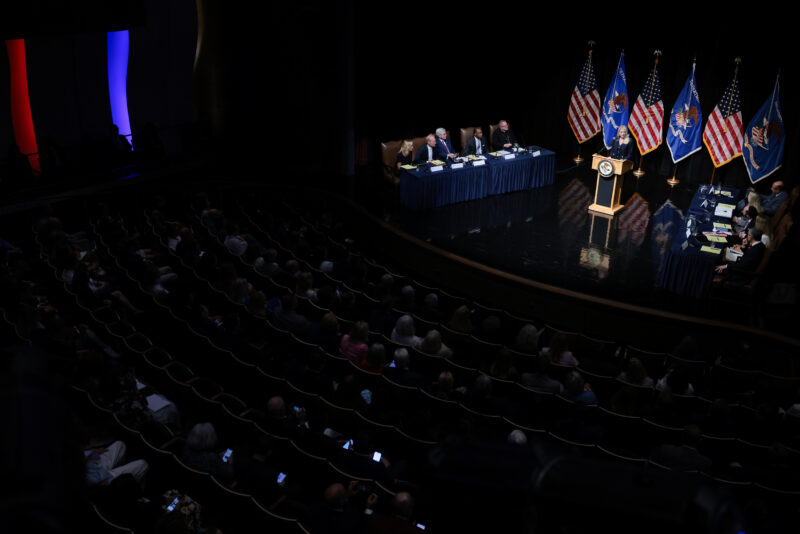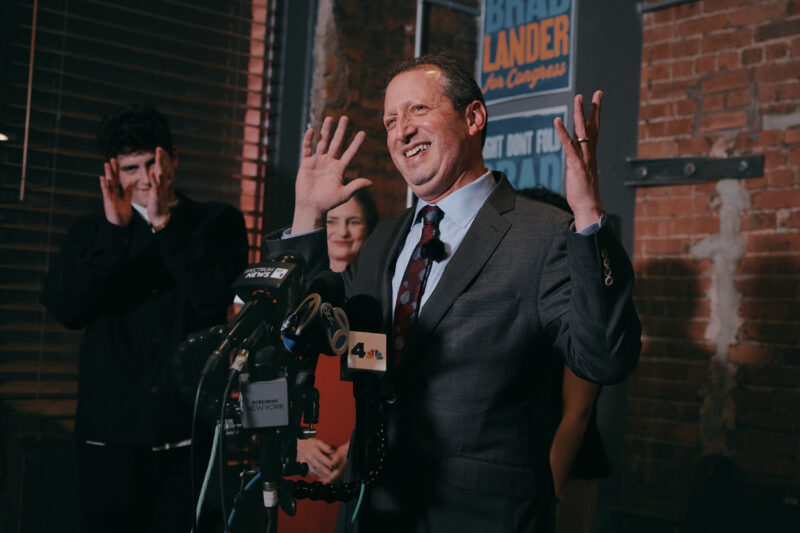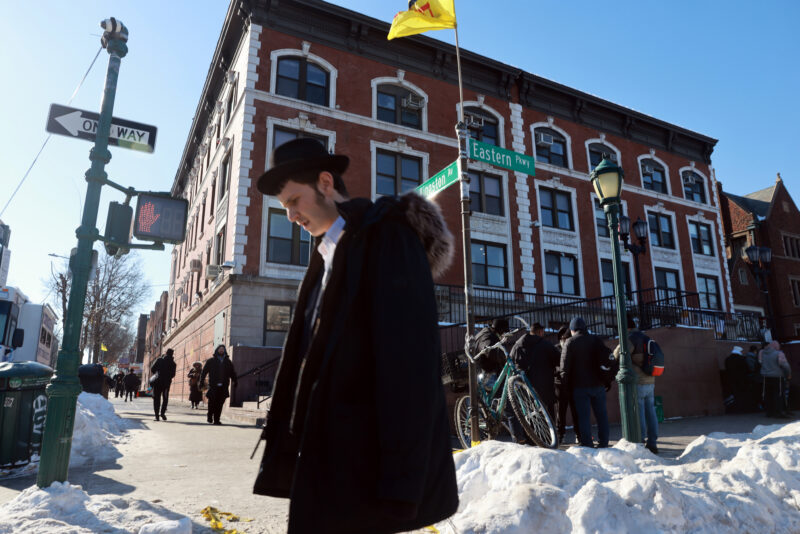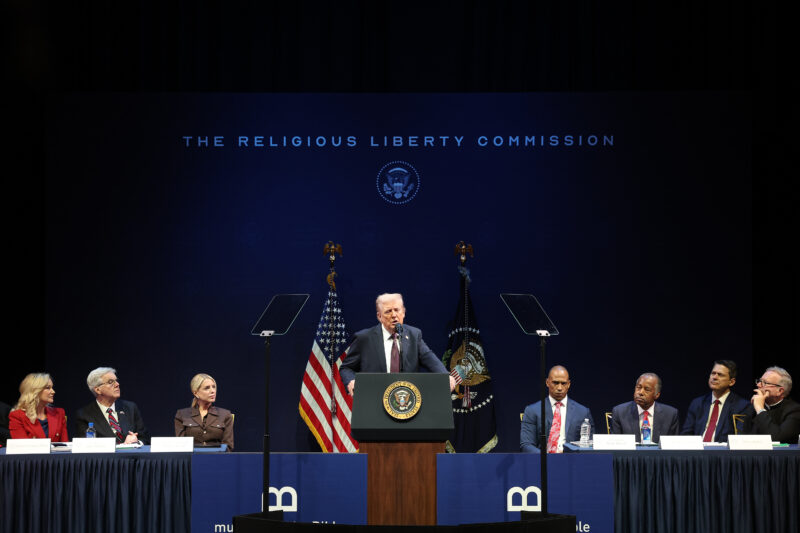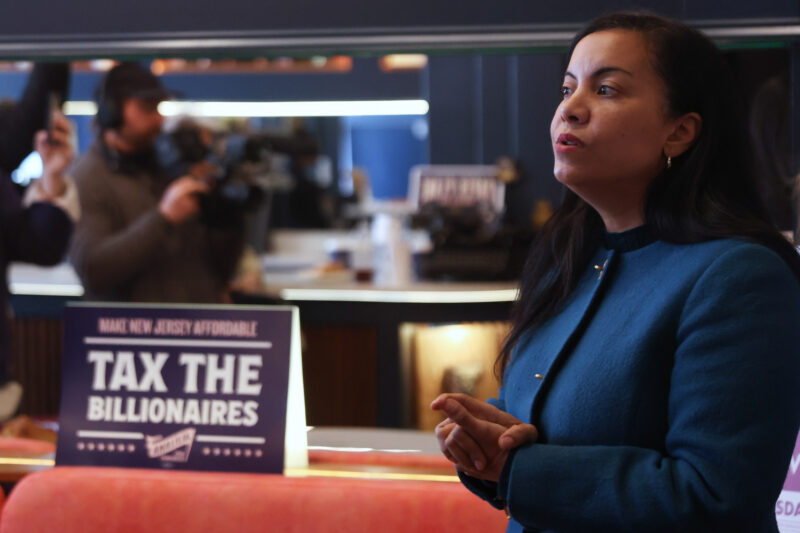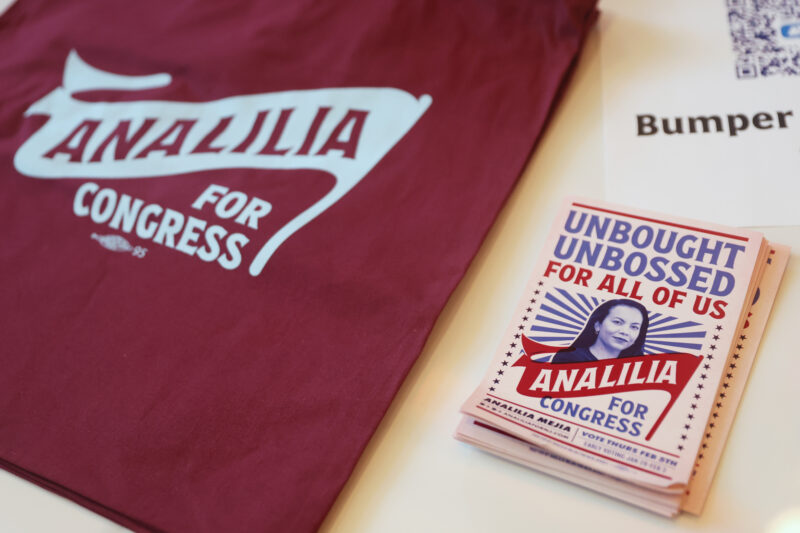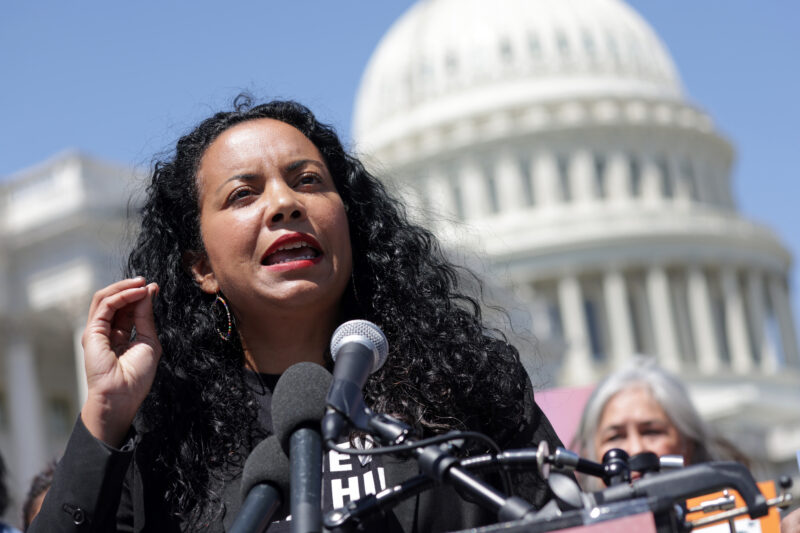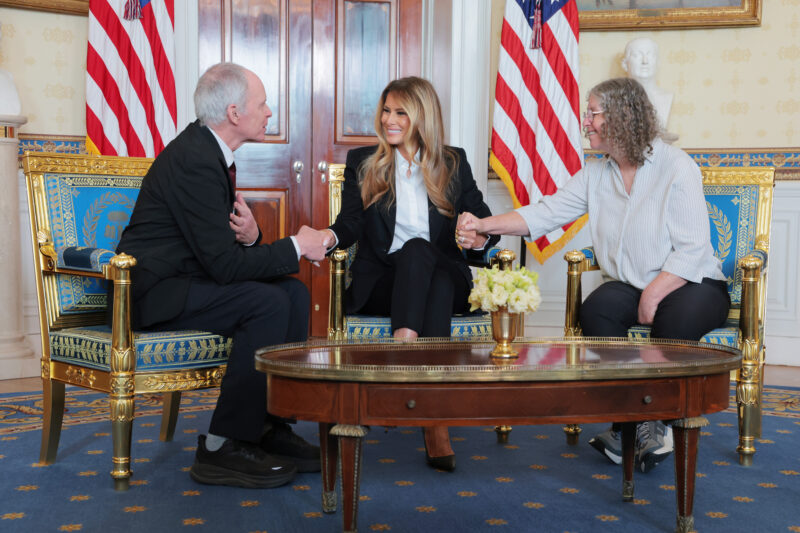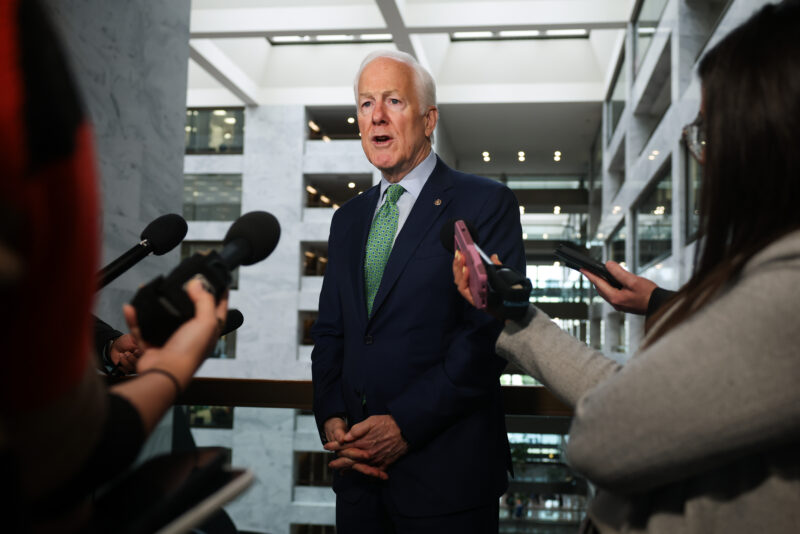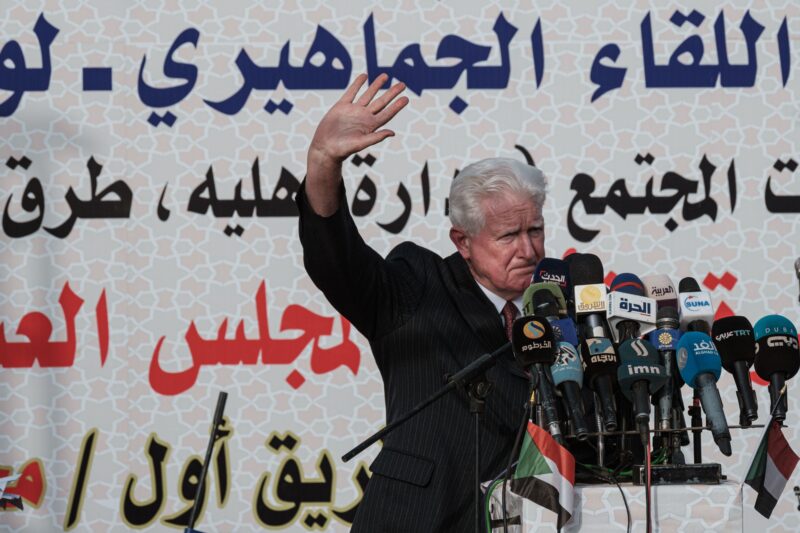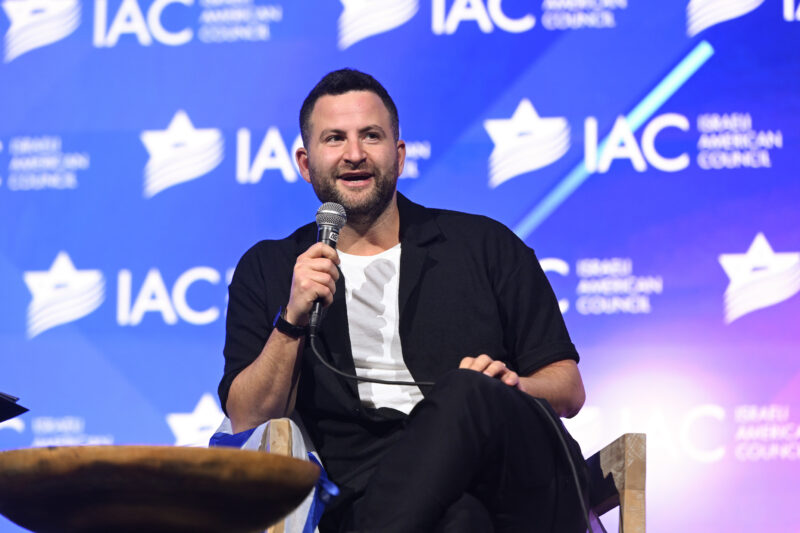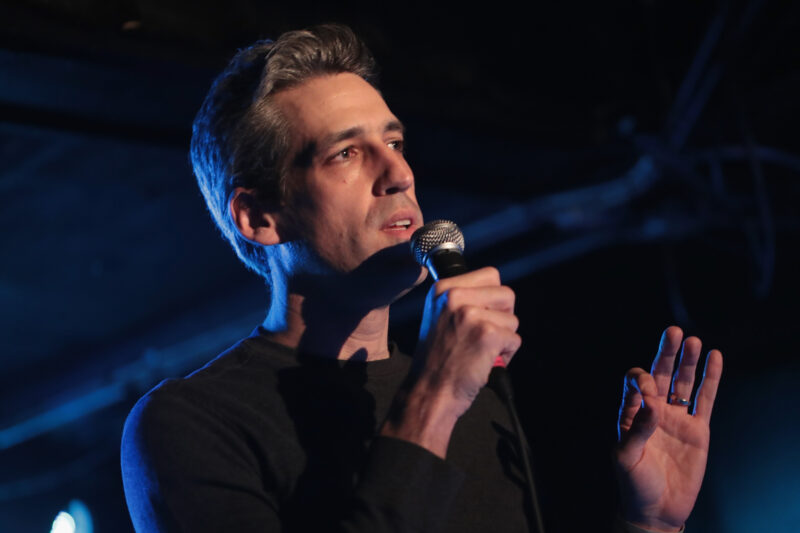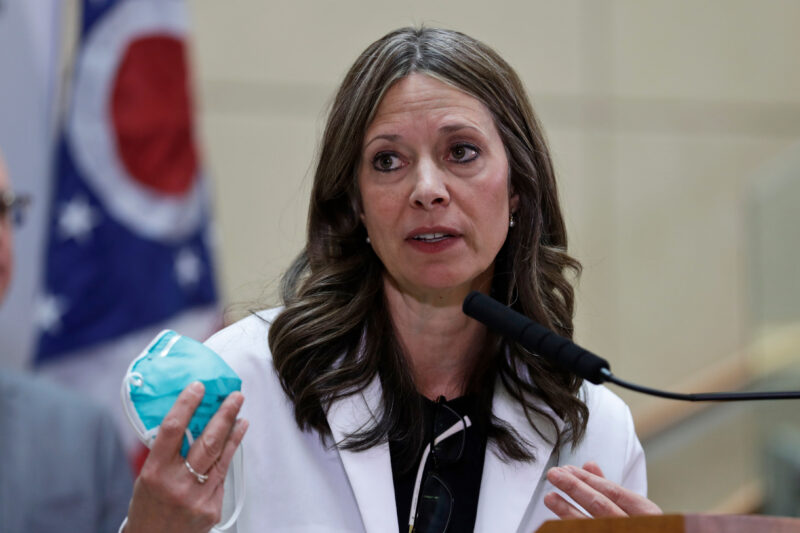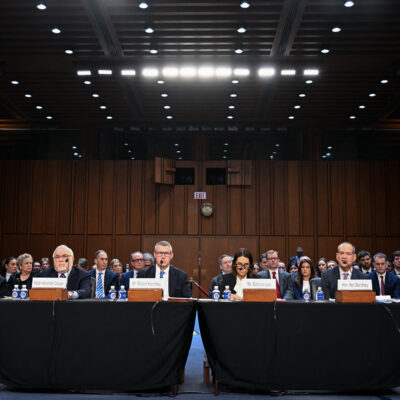Hollywood’s anti-Israel boycott against the law, according to Jewish civil rights group
A letter to industry execs from the Brandeis Center for Human Rights Under Law cites the Civil Rights Act of 1964, which prohibits discrimination based on national origin

Amy Sussman/Getty Images for DGA
Emma Stone and Mark Ruffalo speak onstage during the 76th Directors Guild of America Awards at The Beverly Hilton on February 10, 2024 in Beverly Hills, California.
The current boycott by Hollywood actors, directors and other industry workers against Israeli counterparts “violates federal and state civil rights laws,” according to a letter distributed on Wednesday by a Jewish civil rights group to major U.S. film industry leaders, Jewish Insider has learned.
The letter was sent by the Louis D. Brandeis Center for Human Rights Under Law to top studios, distributors, platforms, talent agencies and film festivals — including Walt Disney Studios, Warner Bros. Motion Picture Group, Universal Pictures, Sony Pictures, Lionsgate, Netflix, Amazon, MGM Studios and Apple Studios. It warns that participation in the “Hollywood Blacklist,” a boycott circulated last month by Film Workers for Palestine that calls for industry professionals to blacklist Israeli artists, companies and institutions, could result in legal consequences.
The letter was signed by more than 5,000 Hollywood actors, directors, and other industry employees, including industry heavyweights such as Emma Stone and Mark Ruffalo.
Boycotting Israeli institutions would also jeopardize studios’ eligibility for film tax credit status, the letter said, noting that “a production that participates in the Hollywood Boycott may also violate its contractual obligations in connection with receiving state tax breaks.”
The letter cites the Civil Rights Act of 1866, which “prohibits both organizations and individuals from refusing to contract for goods and services with Jews and Jewish businesses operating in the United States,” which it says is “an evident component of the Hollywood Blacklist targeting the Israeli film industry while carving out Palestinian Israelis for different treatment from Jews.” The letter also refers to the Civil Rights Act of 1964, which prohibits discrimination based on national origin.
While the blacklist claims to only target Israeli institutions deemed “complicit” in denying Palestinian rights, and not individuals, it refers to all but “a few” Israeli film institutions as complicit. Additionally, the letter states that the effort would affect Jewish individuals who work for boycotted films. Discrimination on the basis of national origin is “self-evident,” the Brandeis Center wrote, “since the Hollywood Blacklist exclusively targets ‘Israeli film institutions,’ while non-Israeli film institutions who may be similarly ‘complicit’ in the alleged whitewashing or support for Israel are not subjected to the same scrutiny and shunning.”
“Boycotting Jews isn’t an original idea, or, thankfully, a legal one in the United States of America,” Rory Lancman, director of corporate initiatives and senior counsel at the Brandeis Center, said in a statement. “We caution Hollywood decision makers against submitting to pressure to effectuate this blatantly illegal blacklist of Jewish Israeli artists and institutions. As we say in our letter, we much prefer to see their work on the screen, and not them in court.”
Since the blacklist petition’s release, approximately 1,200 prominent members of the film industry signed a counterletter, spearheaded by Creative Community For Peace, calling for signers of the original boycott to rethink their stance. Signatories of the counter petition include Mayim Bialik and Debra Messing.
Please log in if you already have a subscription, or subscribe to access the latest updates.




